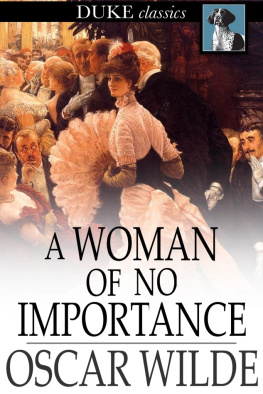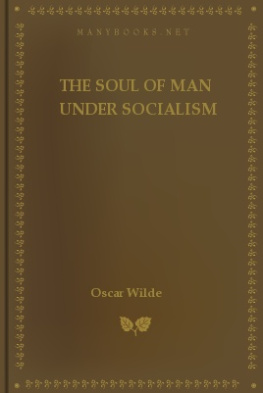Oscar Wilde - De Profundis
Here you can read online Oscar Wilde - De Profundis full text of the book (entire story) in english for free. Download pdf and epub, get meaning, cover and reviews about this ebook. publisher: The Modern Library, genre: Religion. Description of the work, (preface) as well as reviews are available. Best literature library LitArk.com created for fans of good reading and offers a wide selection of genres:
Romance novel
Science fiction
Adventure
Detective
Science
History
Home and family
Prose
Art
Politics
Computer
Non-fiction
Religion
Business
Children
Humor
Choose a favorite category and find really read worthwhile books. Enjoy immersion in the world of imagination, feel the emotions of the characters or learn something new for yourself, make an fascinating discovery.

- Book:De Profundis
- Author:
- Publisher:The Modern Library
- Genre:
- Rating:5 / 5
- Favourites:Add to favourites
- Your mark:
- 100
- 1
- 2
- 3
- 4
- 5
De Profundis: summary, description and annotation
We offer to read an annotation, description, summary or preface (depends on what the author of the book "De Profundis" wrote himself). If you haven't found the necessary information about the book — write in the comments, we will try to find it.
De Profundis — read online for free the complete book (whole text) full work
Below is the text of the book, divided by pages. System saving the place of the last page read, allows you to conveniently read the book "De Profundis" online for free, without having to search again every time where you left off. Put a bookmark, and you can go to the page where you finished reading at any time.
Font size:
Interval:
Bookmark:
Oscar Wilde was born in Dublin in 1854. His father was a celebrated surgeon, his mother a supporter of Irish independence who presided over literary salons in Ireland and England. Although his brilliance as a classicist at Dublins Trinity College won him a scholarship to Magdalen College, Oxford, Wilde failed in his attempts at an academic career. Instead he set his sights on the literary and artistic worlds of London. Fusing the influences of Ruskin, the Pre-Raphaelites, Walter Pater, and Gautiers lart pour lart, he made himself the most visible manifestation of the Aesthetic movement; by 1881 a burlesque of Wilde provided the protagonist for the Gilbert and Sullivan operetta Patience. It was to exploit the popularity of the operetta, in fact, that the producer DOyly Carte underwrote Wildes immensely successful lecture tour of America. Married in 1884 to Constance Lloyd, Wilde worked briefly as a magazine editor while publishing poetry, plays, fairy tales, and essays.
The Picture of Dorian Gray was commissioned by J. M. Stoddardt, the Philadelphia publisher of Lippincotts Monthly Magazine. It appeared in the July 1890 issue and immediately gained a certain notoriety for being mawkish and nauseous, unclean, effeminate, and contaminating. When it was published as a book the following year, Wilde greatly revised and expanded the text, filling it out with a melodramatic subplot and adding a preface that defended his aesthetic philosophy. As for the books value as autobiography, Wilde noted in a letter that the main characters are in different ways reflections of him: Basil Hallward is what I think I am; Lord Henry what the world thinks me; Dorian what I would like to bein other ages, perhaps.
In the early nineties, Wilde was at the center of an artistic milieu characterized by The Yellow Book, the Rhymers Club, and the art of Aubrey Beardsley. He wrote a poetic drama, Salom, in French (1892), but it was banned in England; the play was published in book form with illustrations by Beardsley in 1894. Salom was produced in Paris in 1896.
However, Wilde did achieve success as a popular playwright, writing in rapid succession Lady Windermeres Fan, A Woman of No Importance, An Ideal Husband, and The Importance of Being Earnest. In 1895, two of his plays were on the London stage simultaneously, and he was acknowledged as a pivotal figure in English literary life, admired for his wit and eloquence.
Since at least the mid-1880s, Wilde had lived a sexual double life, and in 1893 he distanced himself from his family by taking rooms at the Savoy Hotel. He had by then embarked on a passionate relationship with the considerably younger Lord Alfred Douglas, the English translator of Salom whom he had met the year after he wrote The Picture of Dorian Gray. In March 1895, Wilde undertook a libel action against the Marquis of Queensberry, Lord Alfreds father, who had denounced Wilde as a somdomite [sic]. Wilde withdrew the suit following damaging cross-examination by the marquiss defense attorney, a former classmate of Wildes. (Question: Have you ever adored a young man madly? Answer: I have never given adoration to anybody except myself.) Shortly thereafter, Wilde was arrested for homosexual offenses and underwent two trials before being sentenced to hard labor at Wandsworth Prison and Reading Gaol. A long recriminatory letter to Douglas written while in prison was eventually published as De Profundis.
Released in 1897, Wilde left for France, calling himself Sebastian Melmoth, a name taken from the gothic novel Melmoth the Wanderer, written by Wildes great-uncle. A poem based on his prison experience, The Ballad of Reading Gaol, was published in 1898.
His health destroyed, and bankrupted by legal expenses, Wilde lived in Paris for three years, making a conversion to Roman Catholicism just before his death in November 1900. He is buried in the cemetery of Pre Lachaise.
Wilde on Jesus or redemption through suffering is as childish and boring as Gide on the same subjects, but Wilde on Bosie Douglas displays the insight, honesty, and unself-conscious style of a great writer. Their relationship is of the greatest psychological interest. It is clear that Wildes infatuation for Bosie was not primarily a sexual one; one surmises that any sexual relations they may have had were infrequent and probably not very satisfactory. Bosie was leading a promiscuous life when they first met, he continued to lead it, and Wilde shows no signs of having been jealous. So far as sex was concerned, the main importance of Bosie in Wildes life was that it was he who introduced Wilde, whose affairs had thitherto been confined to persons of his own class, to the world of male prostitution. When they met, Bosie, who was only just twenty-two, was already being blackmailed.
Your defect was not that you knew so little about life, but that you knew too much. The gutter and the things that live in it had begun to fascinate you. terribly fascinating though the one topic round which your talk invariably centred was, still at the end it became quite monotonous to me.
Their mutual attractionincapable of love as Bosie was, Wildes existence was more important to him than the existence of anybody else except his fatherwas an affair of their egos rather than of their senses; one might say that the Overloved met the Underloved, and such an encounter is always extremely dangerous. Any child who discovers, as Bosie had, that he is hated and rejected by his father is bound to suffer from a feeling, however deeply he represses it, of profound unworthiness. If, when such a child grows up, he meets someone who appears to love him, particularly if this someone be older, his subconscious finds it impossible to believe that such a love is genuine, and he is driven, therefore, continually to test it by behaving badly. If the other rejects him, his suspicion is confirmed, but however often the other forgives, his suspicion can never be laid to rest for good and all. Further, if the feeling of unworthiness is strong enough, he may feel again subconsciously, a contempt for anyone who offers him affection: if his father was right to reject him, then anyone who accepts him is a fool and deserves to be tormented. Wilde was a famous and successful author; the first test, therefore, was to find out whether his love for Bosie was stronger than his love of writing. Wildes time had to be wasted:
At twelve oclock you drove up, and stayed smoking cigarettes and chattering till 1.30, when I had to take you out to luncheon at the Caf Royal or the Berkeley. Luncheon with its liqueurs lasted usually till 3.30. For an hour you retired to Whites. At tea-time you appeared again and stayed till it was time to dress for dinner. You dined with me either at the Savoy or at Tite Street. We did not separate as a rule till after midnight, as supper at Willies had to wind up the entrancing day. That was my life for those three months, every single day, except during the four days when you went abroad.
Then, since the giving of money, particularly the giving of money for the primal childish pleasure of eating, is in our culture the symbol of all-giving love, Bosie had to see how much money he could get Wilde to spend on him:
My ordinary expenses with you for an ordinary day in Londonfor luncheon, dinner, supper, amusements, hansoms and the rest of itranged from 12 to 20. For our three months at Goring my expenses (rent of course included) were 1340. My expenses for eight days in Paris for myself, you, and your Italian servant were nearly 150: Paillard alone absorbing 85.
Significantly, Bosie, on the ground that he would not give up their friendship, renounced his allowance from his father, and, on the ground that his mothers allowance was insufficient, refused to take money from her, but this did not mean that he was prepared to deny himself any luxuries; Wilde was to take the place of both of his parents as provider.
Font size:
Interval:
Bookmark:
Similar books «De Profundis»
Look at similar books to De Profundis. We have selected literature similar in name and meaning in the hope of providing readers with more options to find new, interesting, not yet read works.
Discussion, reviews of the book De Profundis and just readers' own opinions. Leave your comments, write what you think about the work, its meaning or the main characters. Specify what exactly you liked and what you didn't like, and why you think so.

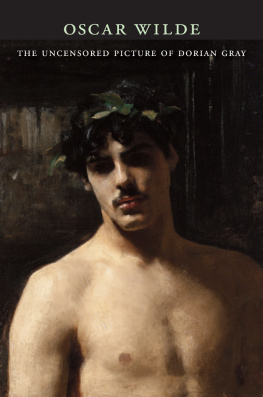

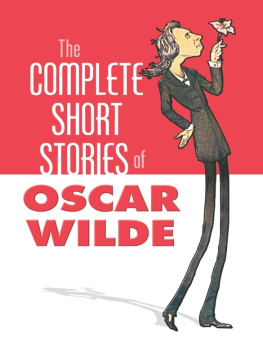
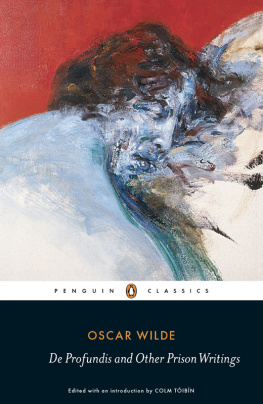
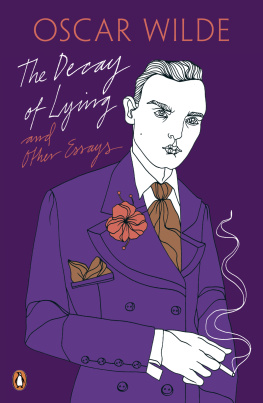
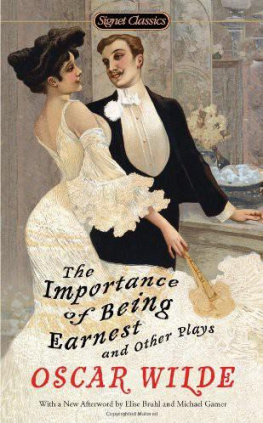
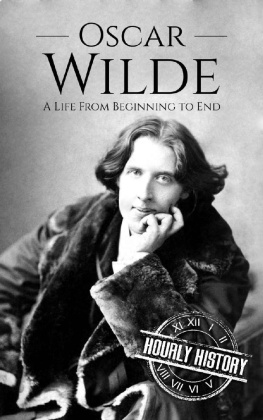
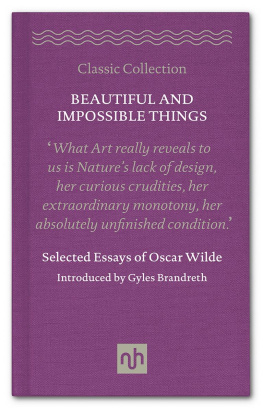
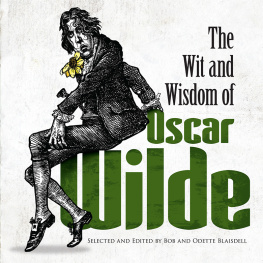
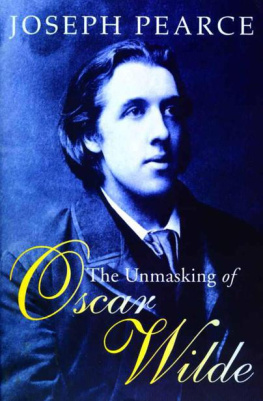
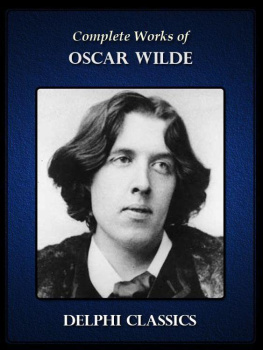
![Wilde Oscar - The secret life of Oscar Wilde: [an intimate biography]](/uploads/posts/book/228457/thumbs/wilde-oscar-the-secret-life-of-oscar-wilde-an.jpg)
